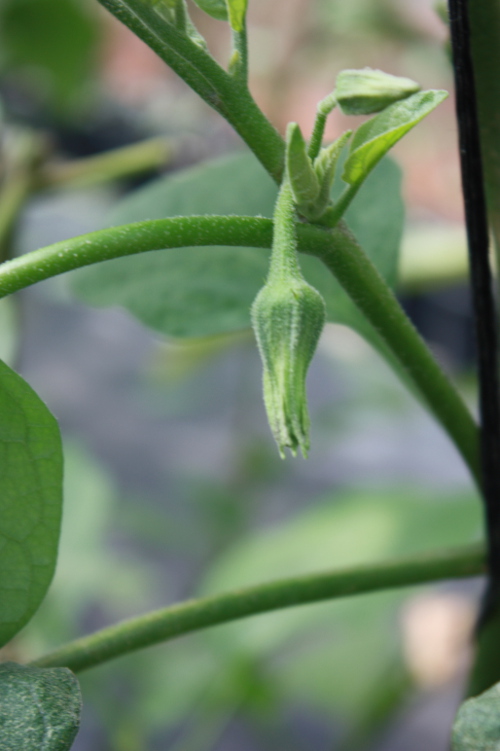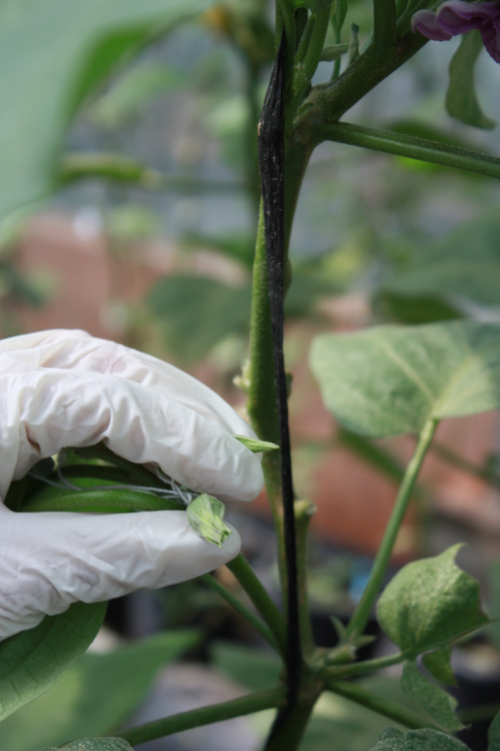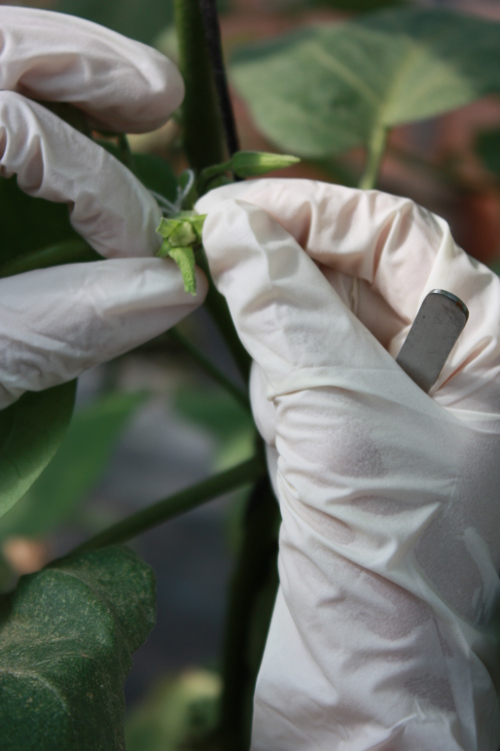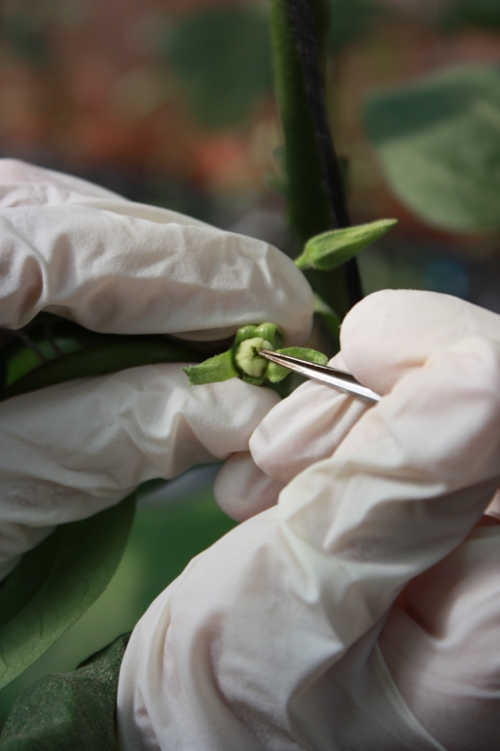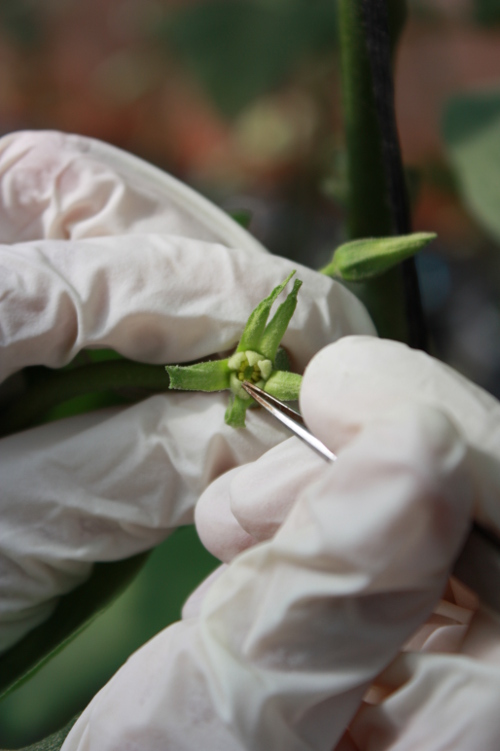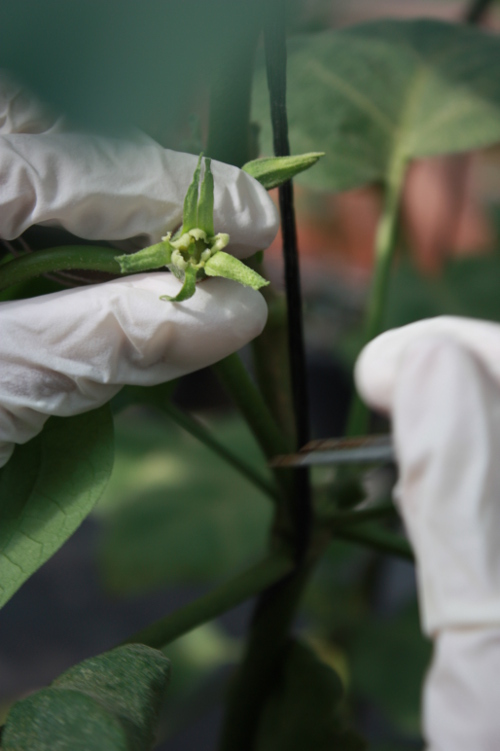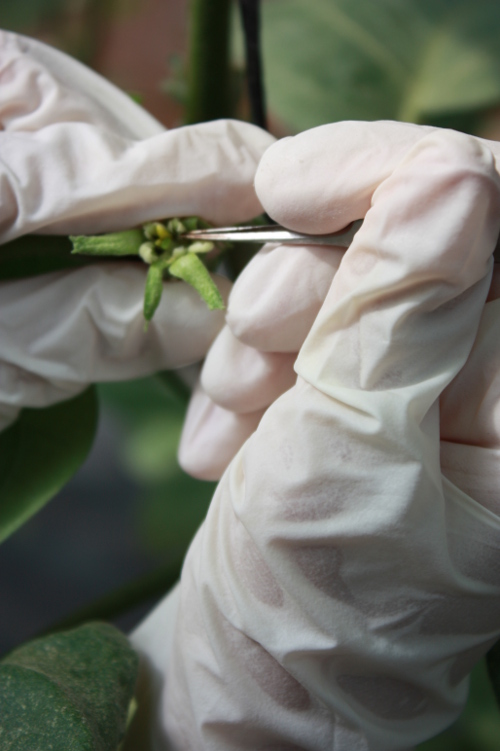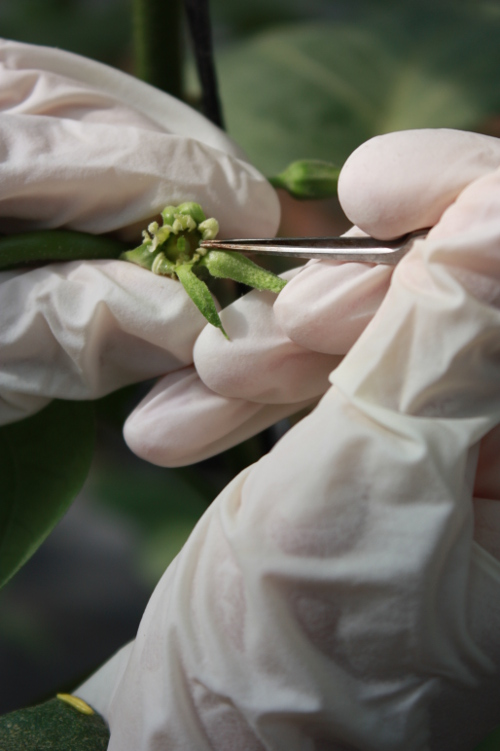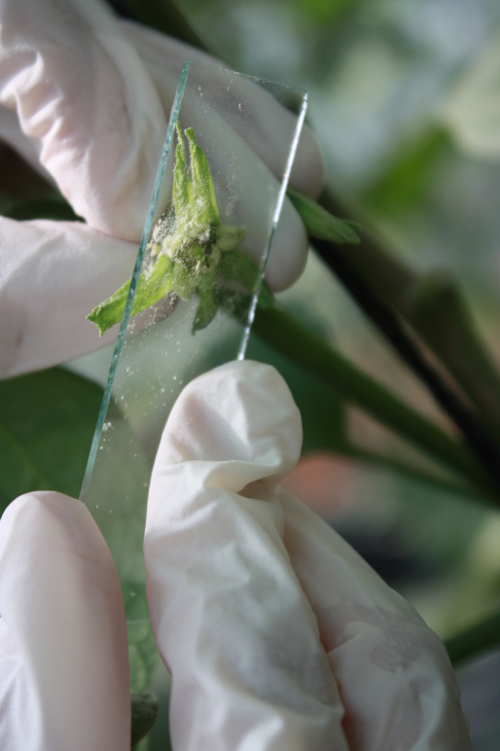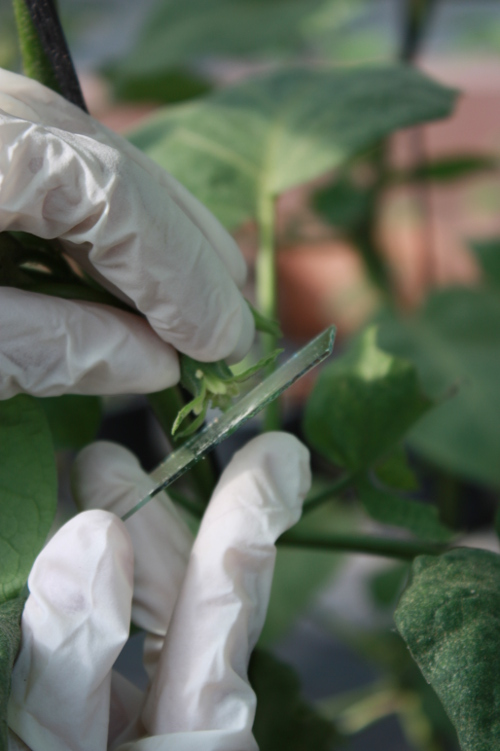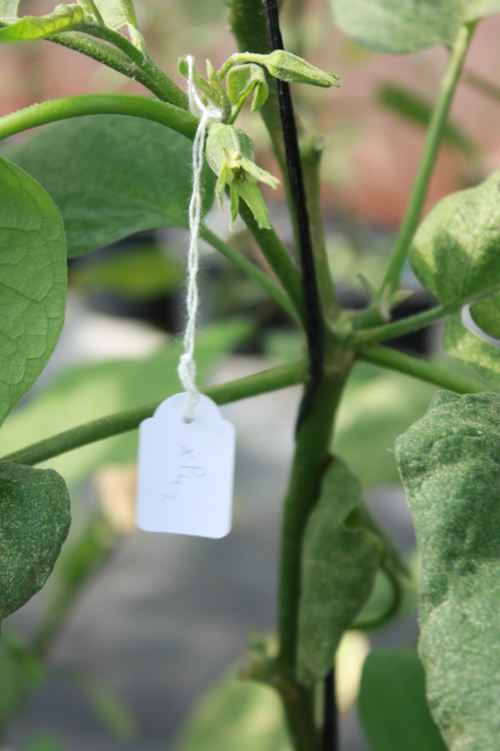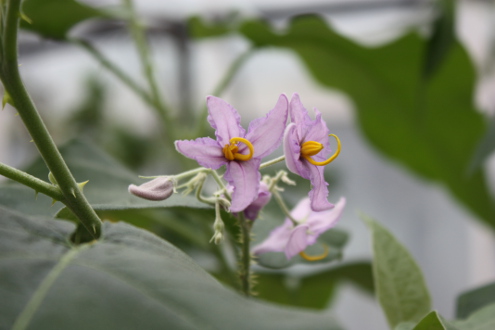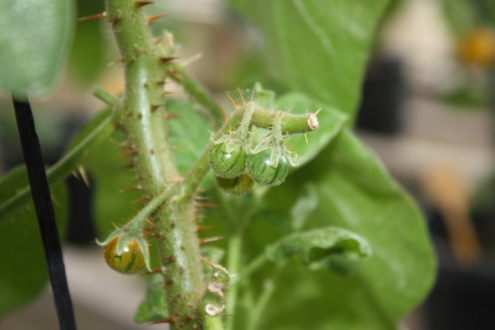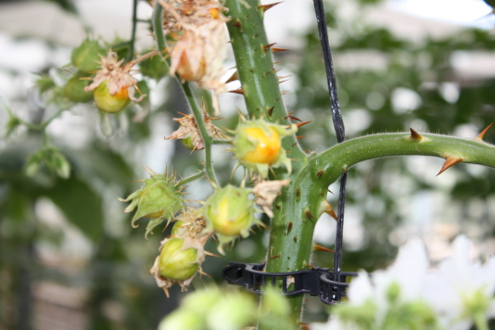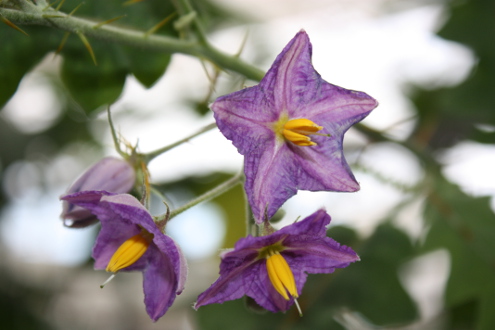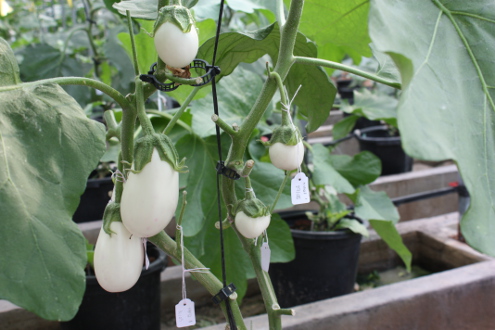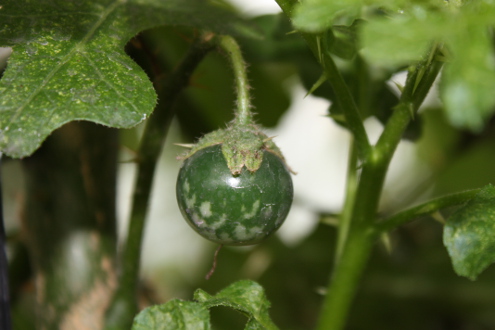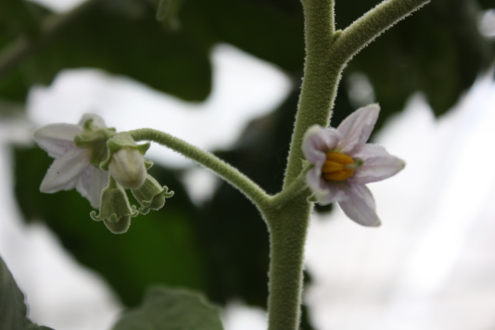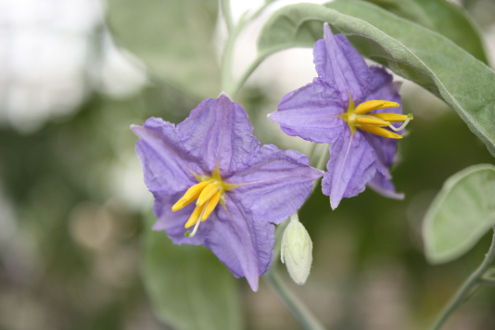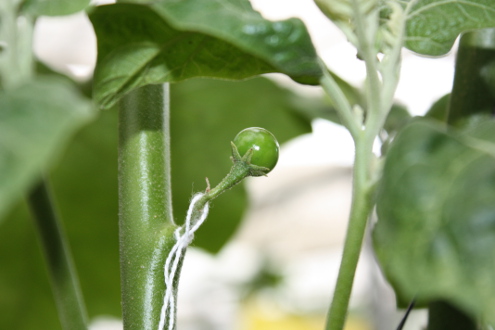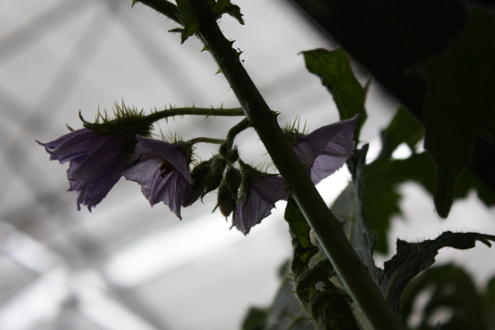
Work Programme
The cultivated eggplant recurrent parents in both sub-programmes will be the same local varieties from Southeast Asia and West Africa. In consequence, the materials obtained from both sub-programmes will be introgression materials in the same genetic backgrounds, which has important advantages for breeders, as well as for the study of the effects of introgressions on traits for adaptation to climate change.
The work plan is divided into two sub-programmes:
a) a short-medium term sub-programme that benefits of the use of the materials that have already undergone through substantial pre-breeding (advanced introgression materials of S. incanum in the genetic background of S. melongena).
b) a medium-long term sub-programme based on the hybridization with wild relatives for the introgression into S. melongena of traits relevant for adaptation to climate change from a wide diversity of eggplant CWRs. In this case, no previous pre-breeding efforts have been made for introgressing genetic material from the wild species in the genetic background of cultivated eggplant. Recurrent parents will be the same eggplant varieties from South East Asia and Western Africa used in the short-medium term sub-programme and which correspond to the most important types in each of these regions.
b) a medium-long term sub-programme based on the hybridization with wild relatives for the introgression into S. melongena of traits relevant for adaptation to climate change from a wide diversity of eggplant CWRs. In this case, no previous pre-breeding efforts have been made for introgressing genetic material from the wild species in the genetic background of cultivated eggplant. Recurrent parents will be the same eggplant varieties from South East Asia and Western Africa used in the short-medium term sub-programme and which correspond to the most important types in each of these regions.
In both sub-programmes, materials will be evaluated for traits of agronomic interest (yield, fruit size, prickliness). In addition, for selected materials of advanced generations, evaluation of bitterness and presence of alkaloids using rapid protocols will be performed.
Two different types of donor materials are being used in the project:
2. accessions of wild relatives of eggplant which have not been subjected to previous pre-breeding and which are available from partner collections and public germplasm collections
1. advanced backcross generations of eggplant with S. incanum introgressions, already obtained by the Spanish team previously to this project through a process that has consisted in obtaining interspecific hybrids and mapping populations, the development of a genetic map, and the use of whole genome marker assisted selection in successive backcross generations
This work is part of the initiative "Adapting Agriculture to Climate Change: Collecting, Protecting and Preparing Crop Wild Relatives" which is supported by the Government of Norway. The project is managed by the Global Crop Diversity Trust with the Millenium Seed Bank of the Royal Botanic Gardens, Kew and implemented in partnership with national and international gene banks and plant breeding institutes around the world. For forward informatin see the project website: http://www.cwrdiversity.org/
